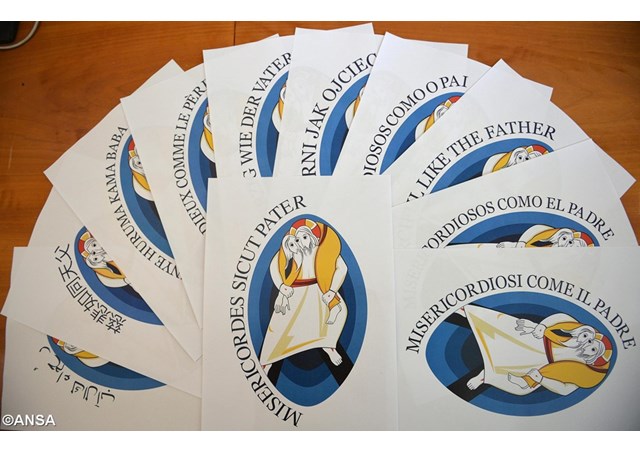
SACBC Bishops: Become "missionaries of mercy" for Jubilee

(Vatican Radio) The Bishops of Southern Africa are using the Jubilee of Mercy to urge the Catholics of the country to “reach out to others in corporal and spiritual works of mercy” and to celebrate the Sacrament of Confession – “joyful encounter with the Lord, full of mercy and compassion” – regularly throughout the year.
In the Pastoral Letter of the Southern African Bishops Conference – bringing together the bishops of Botswana, South Africa and Swaziland – Bishop Jan De Groef, M.Afr. asks for the Jubilee Year of Mercy to “be a time of renewal for all of us” and calls on the faithful “become missionaries of God’s mercy in today’s world,” especially to those who have fallen away from the practice of their Faith.
The full letter is below
PASTORAL LETTER OF THE SACBC BISHOPS FOR THE EXTRAORDINARY JUBILEE OF MERCY
Dear brothers and sisters in Christ,
When we speak about mercy what does it really mean? It should mean much more than some almsgiving, some act of charity to a beggar, although all of this can be part of it. First of all we have to look at the source of true and everlasting mercy: God, the most Holy Trinity, Father, Son and Holy Spirit. As Pope Francis writes in his letter (‘bull’) of proclamation (‘indiction’) of the extraordinary jubilee of mercy: ‘Jesus Christ is the face of the Father’s mercy’. It is this mercy which has been poured into our hearts through the Holy Spirit. Pope Francis writes: ‘Mercy: the bridge that connects God and man, opening our hearts to a hope of being loved forever despite our sinfulness’. Gazing, contemplating Jesus Christ as the face of God’s mercy (in prayer) we can become – writes Pope Francis – ‘a more effective sign of the Father’s merciful action in our lives’. Just as God is merciful, so we are called to be merciful to each other. The motto of this Jubilee Year of Mercy ‘Merciful like the Father’ very well points at this.
How can we live this jubilee? A number of events have been planned in Rome but Pope Francis challenges us to extend this to our own diocese and parishes. The Holy Year of Mercy is to start on the 08th December 2015 when we celebrate the Solemnity of the Immaculate Conception. The Pope will open a special door, called the Holy Door (which has been closed for several years), at St. Peter’s so that it may become a ‘Door of Mercy through which anyone who enters will experience the love of God who consoles, pardons, and instils hope’. But the following Sunday, the third Sunday of Advent, he will open such a door in his own cathedral, the Basilica of St. John Lateran, and moreover he encourages all Bishops to open such a Holy Door somewhere in their diocese, be it at the cathedral or at a shrine frequented by large numbers of pilgrims. This is why we decided to have such a Door at our Marian shrine at Tsheseng which we will open on Saturday 12th December during our diocesan pilgrimage.
This should then spill over throughout the whole diocese in the various parishes and Christian communities. I very much encourage all Priests together with their liturgical committees and parish and local councils to be creative and organize activities which highlight God’s Mercy all throughout the year which will close with the Solemnity of Christ the King on 20th November 2016. I challenge also Sodalities, other groups of young and old and diocesan projects to take this up in their year programs.
What could be of particular help in your personal prayer and in your bible sharing at home in your family, or when meeting as blocks or in your Sodality meetings, is to choose one or other parable which speaks about God’s Mercy like in the gospel of Luke 15,1-32. The Southern African Bishops Conference is preparing a reflection booklet in various languages which could also be of a help for sharing and prayer.
Being filled with the love and mercy of God we shall be stimulated to reach out to others in corporal and spiritual works of mercy. Pope Francis invites us to ‘rediscover these corporal works of mercy: to feed the hungry, give drink to the thirsty, clothe the naked, welcome the stranger, heal the sick, visit the imprisoned and bury the dead’. He urges us ‘not to forget the spiritual works of mercy: to counsel the doubtful, instruct the ignorant, admonish sinners, comfort the afflicted, forgive offences, bear patiently those who do us ill, and pray for the living and the dead’.
Central to our celebration of the Jubilee Year of Mercy should be the Sacrament of Mercy, the Sacrament of Reconciliation. I very much encourage you to celebrate – I say celebrate and not undergo confession – the sacrament as a joyful encounter with the Lord, full of mercy and compassion, regularly throughout the year.
Other activities will be planned on diocesan level with the help of a committee chosen for this purpose, which will also come up with a number of suggestions for parishes.
Dear brothers and sisters in Christ, may this Jubilee Year of Mercy be a time of renewal for all of us, members of the one family of God, the Church, so that we, through our outreach especially to those brothers and sisters of ours who have fallen away, may become missionaries of God’s mercy in today’s world.
May Mary, our mother in the faith, intercede for us,
Bethlehem, 08th December 2015 on the Solemnity of the Immaculate Conception.
+Jan De Groef, M.Afr.
Bishop of Bethlehem
| All the contents on this site are copyrighted ©. |


